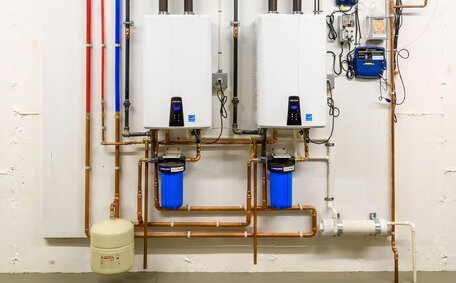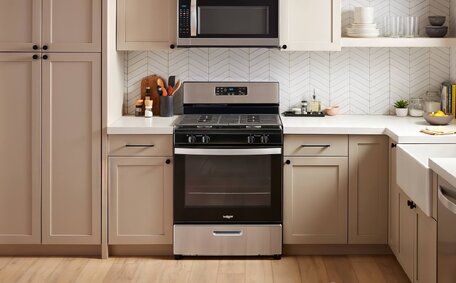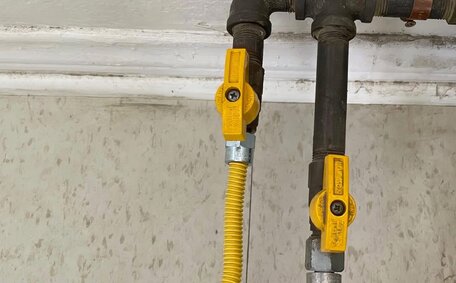
How Hard Water Hurts Hot Water Heaters
Hard water leaves mineral deposits in heaters, pipes and tanks. This limescale reduces efficiency, lifespan and hot water availability. Contact us for affordable water softening solutions.
Read MoreWhen a drain becomes blocked in a rental property, determining responsibility between landlord and tenant can be complicated. As outlined by NSW Fair Trading, landlords have obligations to ensure rented premises are kept in good repair and comply with health and safety standards. This obligation typically extends to drainage system issues.
However, tenants are responsible for maintaining the rented space and must not intentionally or negligently cause damage. Thus, tenants may be responsible if blockages arise from incorrect disposal in drains or poor maintenance of kitchen sink strainers.
A key consideration is whether the blockage stems from a pre-existing defect or a lack of proper maintenance. If the drainage system was already compromised, or issues have been left unaddressed, it’s clear that the landlord responsible must remedy the situation.
Lease agreements should outline procedures for managing various plumbing issues. Tenants should promptly report suspected blockages or drainage faults so landlords can arrange inspection and necessary repairs before major flooding or health hazards develop.
In instances impacting shared drains sewer lines, liability can fall to property owners or public authorities like Sydney Water. It is crucial to promptly seek professional help to fix blocked drains in order to prevent leaks or overflows from worsening.
Lease agreements play a pivotal role in delineating landlord and tenant obligations for drain maintenance and repairs in rental properties. Tenants must consult their agreement in the event of a blockage to ascertain their responsibilities.
Routine clauses define the landlord’s obligation to maintain the property in reasonable condition, including addressing recurring drainage blockages. Lease agreements might include provisions mandating swift reporting of suspected issues by tenants to expedite repairs.
However, clauses may stipulate that issues not caused by tenant negligence fall under the landlord’s responsibility to resolve. This includes placing inappropriate items down drains or failing to maintain sink strainers. The tenant would bear costs in these scenarios.
In cases where existing defects or lack of maintenance by the landlord clearly caused the blockage, the landlord would remain responsible for unblocking drains and restoring proper function. Issues that might have been caused by neglected drainage can be forestalled by landlords with regular inspections and repairs.
Where lines service multiple properties, owners’ corporations or authorities like Sydney Water may be responsible. Understanding lease agreements and inspector recommendations assists in resolving blocked drain issues by assigning liability in these complex cases.
Identifying what specifically caused a drain blockage is key to assigning responsibility between landlords and tenants. Common culprits for clogged drains include:
The landlord carries liability for blockages caused by factors like invasive tree roots or inadequate maintenance, regardless of tenant actions. They remain responsible for all repair and drain cleaning costs in these instances.
However, blockages clearly arising from inappropriate items deliberately forced down drains or failure to use drain strainers by tenants indicate tenant liability. The tenant would bear unblocking and repair expenses caused by their negligent behaviour.
In scenarios involving municipal sewer mains or multi-property shared drainage, responsibility may fall to property owners’ corporations or authorities like Sydney Water if they failed to adequately maintain these systems.
Determining if a blocked drain stems from tenant negligence or pre-existing infrastructure issues is key in assigning responsibility. Tenants have obligations under NSW Fair Trading guidelines to avoid damaging properties or misusing facilities.
If a blockage clearly results from inappropriate items put down drains or failure to maintain filters, the tenant is likely responsible for unblocking and repair costs. This counts as negligent damage per rental agreements.
Landlords must address drainage issues resulting from conditions such as tree root incursion, structural deficiencies, or maintenance neglect, as part of their obligation to maintain a functional rental property.
Conducting regular inspections is vital to detect and address possible drainage problems before tenants move in. Tenants should keep written records noting drainage issues requiring landlord repairs.
In cases impacting shared plumbing systems, owners’ corporations or Sydney Water may be involved. But understanding if tenant behaviour or existing defects triggered blockages still guides overall liability.
Blockages in drainage systems shared between neighbouring properties can present complex responsibility scenarios. As per NSW Fair Trading guidelines, landlords retain obligations to rectify faults stemming from their rental property impacting adjoining buildings.
Landlords are typically not liable for blockages originating outside their property’s infrastructure. Tenants should still promptly inform landlords regarding suspected inter-property drainage issues to clarify responsibility.
For blocked drains affecting several private homes, apartment complexes, or commercial spaces, collective action and funding from owners’ corporations might be necessary for investigation and repair. This depends on the property’s by-laws and repair obligations outlined for shared infrastructure.
If public sewer mains are involved, Sydney Water must be contacted to assess and restore proper function. But onsite factors like pipe discontinuity or illegal stormwater connectivity may also require premises owners to contribute to repairs.
Prompt plumbing inspections play a crucial role in pinpointing blockages and formulating solutions in intricate situations involving multiple properties. Ensuring corrective action prevents health hazards or extensive structural damage remains vital.
Professional plumbing services provide an optimal solution for tackling blocked drainage issues in rental properties. At Picnic Point Plumbing, our licenced technicians have the expertise to rapidly identify blockage causes and sites, recommend appropriate repairs, and restore proper function.
Our advanced tools, such as top-of-the-line drain cleaners and CCTV drain cameras, enable precise and efficient obstruction removal. In cross-property situations, we work with all involved parties to find and implement the best solutions.
Tenants and landlords dealing with blocked drains should phone our 24/7 hotline on 1300 349 338 for priority assistance. We also respond promptly to emailed requests at jobs@picnicpointplumbingservices.com.au. Our team manages all facets of jobs safely, cost-effectively and to strict quality standards.
Engaging professional drainage specialists offers peace of mind that blockages will be swiftly fixed correctly, avoiding escalating property damage, unhealthy conditions or disputes. As industry veterans serving Sydney for over 10 years, no blocked drain situation is too big or small for our Picnic Point Plumbing experts.
Tenants and landlords can take proactive measures to help prevent blocked drain issues in your rental properties from occurring and avoid related disputes over liability.
Tenants should be vigilant regarding what goes down sinks and drains. Food scraps, fats, oils and hair should be discarded in the bin rather than down the drain. Products labelled “flushable” like wet wipes should be avoided.
Regular cleaning of strainers is essential to prevent food particles, hair, and other debris from clogging your kitchen sink. Sinks and drains should also be thoroughly cleaned with baking soda and vinegar monthly.
Landlords should arrange professional drain inspections for their properties every one to two years to detect potential root infiltrations and pipe damage early on. Catching issues before blockages form allows cost-effective maintenance.
Maintaining proper connections to sewer lines or stormwater drainage systems is critical for upholding the plumbing integrity of your property. Keeping drainage infrastructure in good repair helps flows stay smooth.
In shared drainage setups, owners’ corporations may need to arrange sweeping CCTV investigations if cross-property issues become suspected.
Vigilance can prevent problems; however, swift action at the first sign of a blockage is critical. Contact Picnic Point Plumbing at 1300 349 338 for efficient solutions.
As a tenant, you can help prevent many common drainage issues by following these tips:
Being mindful of what goes into sinks and drains can reduce the frequency of blockages, minimising risks. However, should you suspect a blockage or require assistance, don’t hesitate to contact Picnic Point Plumbing on 1300 349 338.
As a landlord, following these tips can help avoid blocked drain disputes and plumbing headaches:
Staying proactive and transparent regarding plumbing obligations prevents many tenant disputes. But acting swiftly if problems arise remains essential. Our Picnic Point team transform blocked drains into flowing, fully-functional systems rapidly.
Hard water leaves mineral deposits in heaters, pipes and tanks. This limescale reduces efficiency, lifespan and hot water availability. Contact us for affordable water softening solutions.
Read MoreIt’s important to routinely check your gas appliances for any issues. Signs of problems include gas leaks, strange sounds, odd smells and more. Have a professional inspect your gas appliances annually and service them regularly for safety.
Read MoreUpgrading your gas meter is a simple process completed by registered technicians. It involves disconnecting your gas supply for 15 minutes to swap the old meter for a new digital smart meter. The upgrade is free and improves accuracy.
Read MorePicnic Point, 2213 NSW
We will call back as soon as possible.




